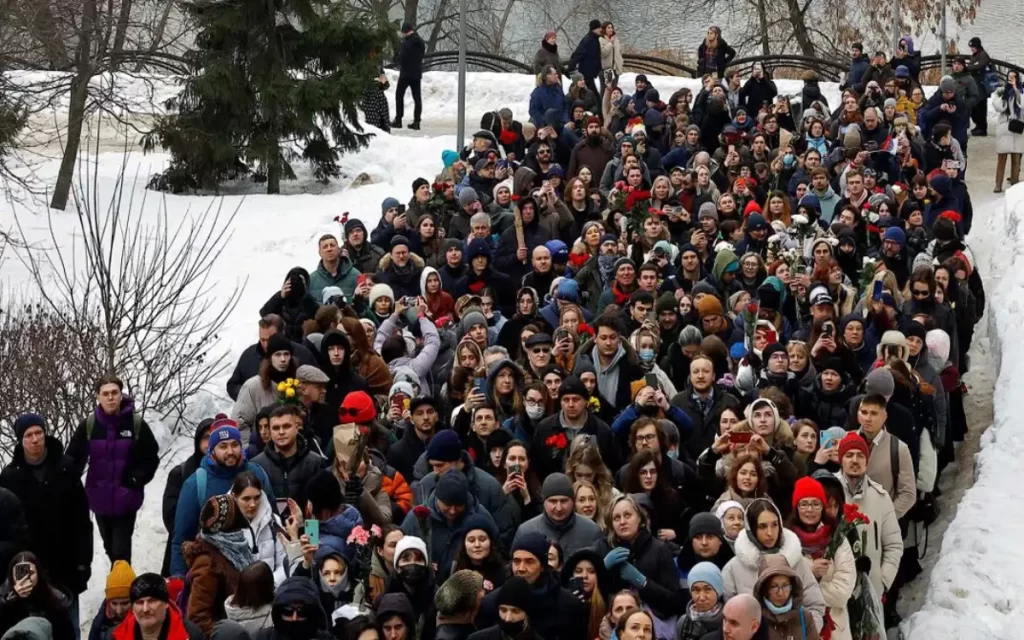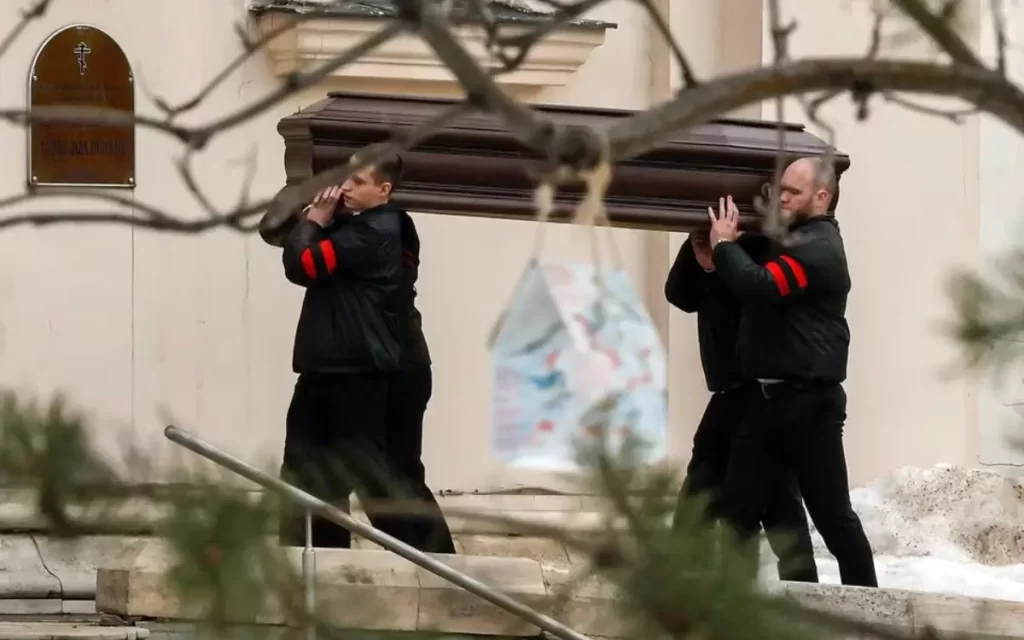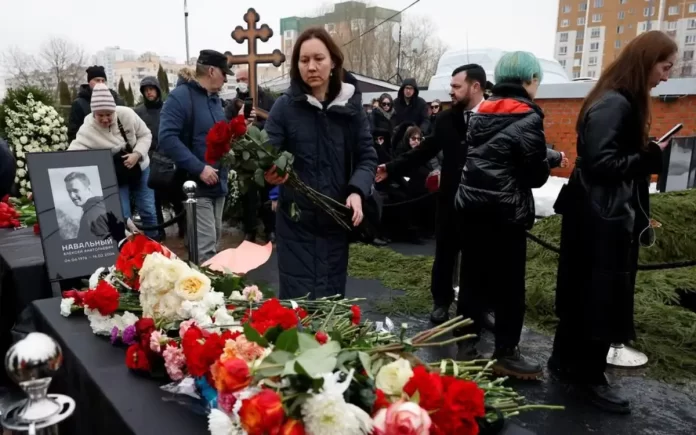Moscow: In a poignant ceremony that resonated with both grief and defiance, thousands of Russians bid farewell to Alexei Navalny, their voices echoing his name through the streets of Moscow as he was laid to rest on Friday.
At a cemetery not far from his former residence, Navalny’s parents, Lyudmila and Anatoly, leaned over his open casket, tenderly kissing their son goodbye. As a small ensemble played, mourners, crossing themselves, approached to touch his face one last time before a priest draped a white shroud over him, and the coffin was gently sealed.
Navalny, renowned as President Vladimir Putin’s most vocal critic within Russia, tragically passed away at the age of 47 in an Arctic penal colony on Feb. 16, igniting accusations of foul play from his supporters. Despite Kremlin denials of state involvement in his demise, suspicions linger.
The funeral, held at the Soothe My Sorrows church in southeast Moscow, drew a vast throng. Among them, clutching bouquets of flowers, many joined in a chorus of chants, expressing demands for freedom, peace, and accountability. Despite a heavy police presence, the gathering unfolded as one of the largest displays of anti-Kremlin sentiment in recent memory.

Amidst the crowd, a young woman named Kamila remarked, “We are here to honor the memory of a man who was unafraid, just as we refuse to cower in fear.” Kirill, 25, echoed her sentiments, lamenting the future of Russia but affirming, “We will persevere, believing in a brighter tomorrow.”
Public demonstrations in Russia are fraught with risk, particularly in the shadow of the ongoing conflict in Ukraine. Despite the turnout and moments of defiance, Navalny’s untimely demise leaves Russia’s opposition in disarray, with Putin poised to extend his rule in an upcoming election. His absence leaves many feeling adrift, unsure of their next steps.
Navalny’s mother, Lyudmila, waged a week-long battle with authorities to secure his body, resisting pressure for a private burial. The ceremony, held in a church supporting Russian soldiers, was brief yet poignant. State media offered limited coverage, focusing more on Navalny’s legal troubles than on the outpouring of grief.
As the world watched the farewell unfold on Navalny’s blocked YouTube channel, messages of sorrow and defiance flooded the screen. Allies urged supporters to honor Navalny’s memory with solemn vigils, despite warnings from the Kremlin against unsanctioned gatherings.
Navalny’s family, living outside Russia, mourned from afar. His wife, Yulia, pledged to continue his work, expressing her devotion and determination to carry on his legacy. Their daughter, Dasha, bid her father a tearful farewell, honoring him as her hero and vowing to uphold his ideals.

Alexei Navalny’s passing marks the end of a chapter in Russia’s tumultuous political landscape. His courage, resilience, and unwavering commitment to justice leave an indelible imprint on the nation’s collective consciousness, inspiring future generations to challenge oppression and strive for a better tomorrow.



